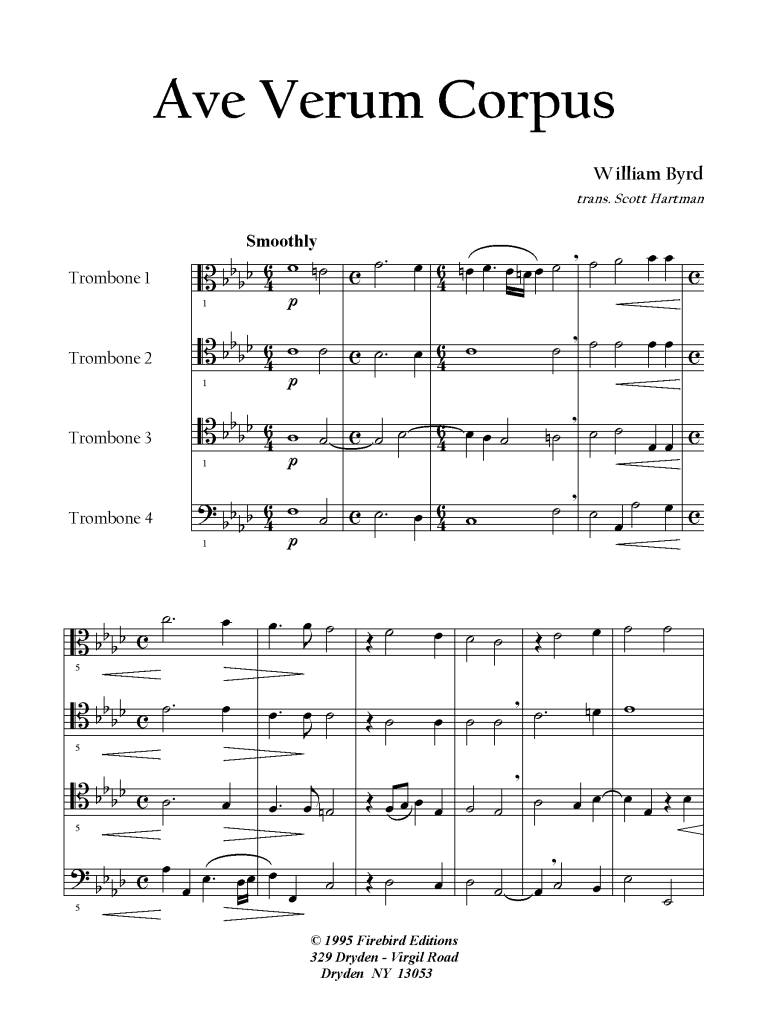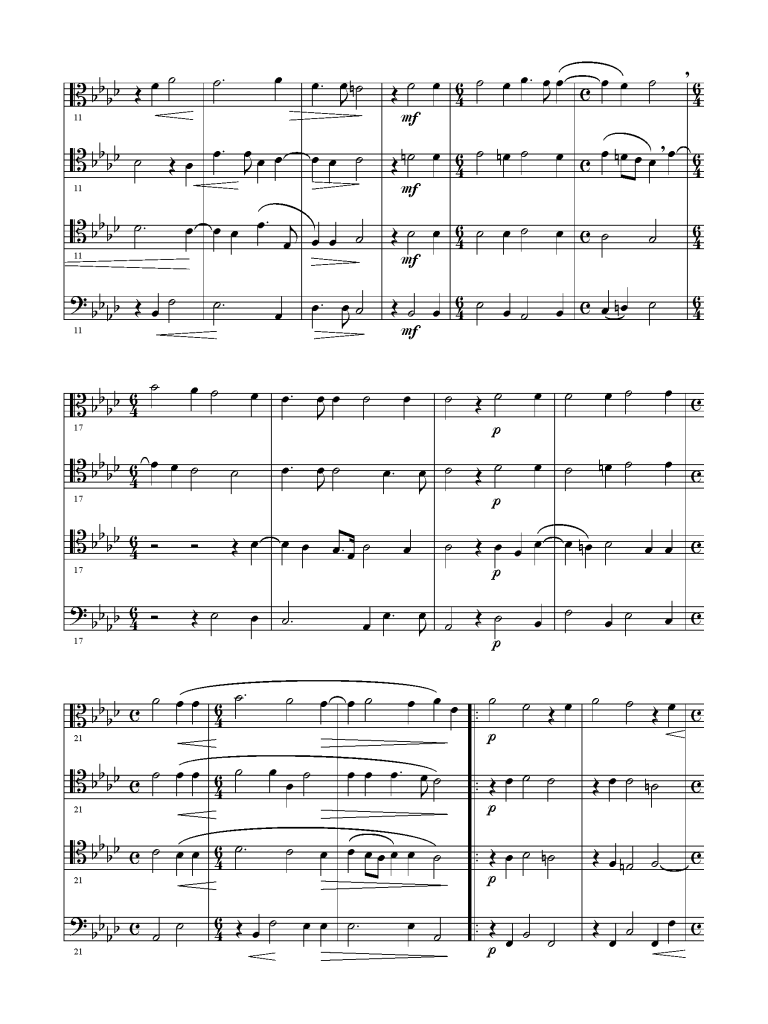Program Notes
William Byrd (1543 – 1623) was England’s most celebrated composer of the late Renaissance. He succeeded Thomas Tallis, his teacher and close friend, in this position of prominence in Elizabethan England. William Byrd’s works include a vast amount of vocal music, for which he is best known, including masses, motets and polyphonic songs, in addition to music written for keyboard and instrumental consorts.
Living during a Protestent period of England’s history, Byrd was a devout Catholic and composed a great deal of Latin sacred music. His Latin liturgical music wasn’t widely performed in public, yet he published hundreds of motets. He published collections of Cantiones Sacrae (sacred songs) in 1575, 1589, and 1591, and by 1591, he was primarily occupied with composing church music for the Roman liturgy. They were surely sung in private worship services in which Catholics met in secret.
This motet, Ave Verum Corpus, from the Gradualia of 1605, is one of his most loved motets. Through it, we experience William Byrd’s mastery of creating a musical environment that beckons the listener to enter and be transported to another place and time. As the piece comes to an end, one often feels a disappointment at having to leave such a beautiful place!
Scott Hartman received his BM and MM degrees from the Eastman School of Music and began his career by joining the Empire Brass Quintet and the Boston University faculty in 1984. As a trombone soloist and with his various chamber ensembles, Scott has taught and played concerts in all fifty United States and throughout the world. Mr. Hartman presently performs and records with Proteus 7, the Millennium Brass, the Brass Band of Battle Creek, the Yale Brass Trio and the trombone quartet – Four of a Kind. Scott heads the trombone departments at Yale University. More information concerning Mr. Hartman and his present activities is available at his website – www.slushpump.com
Back to Quartets

